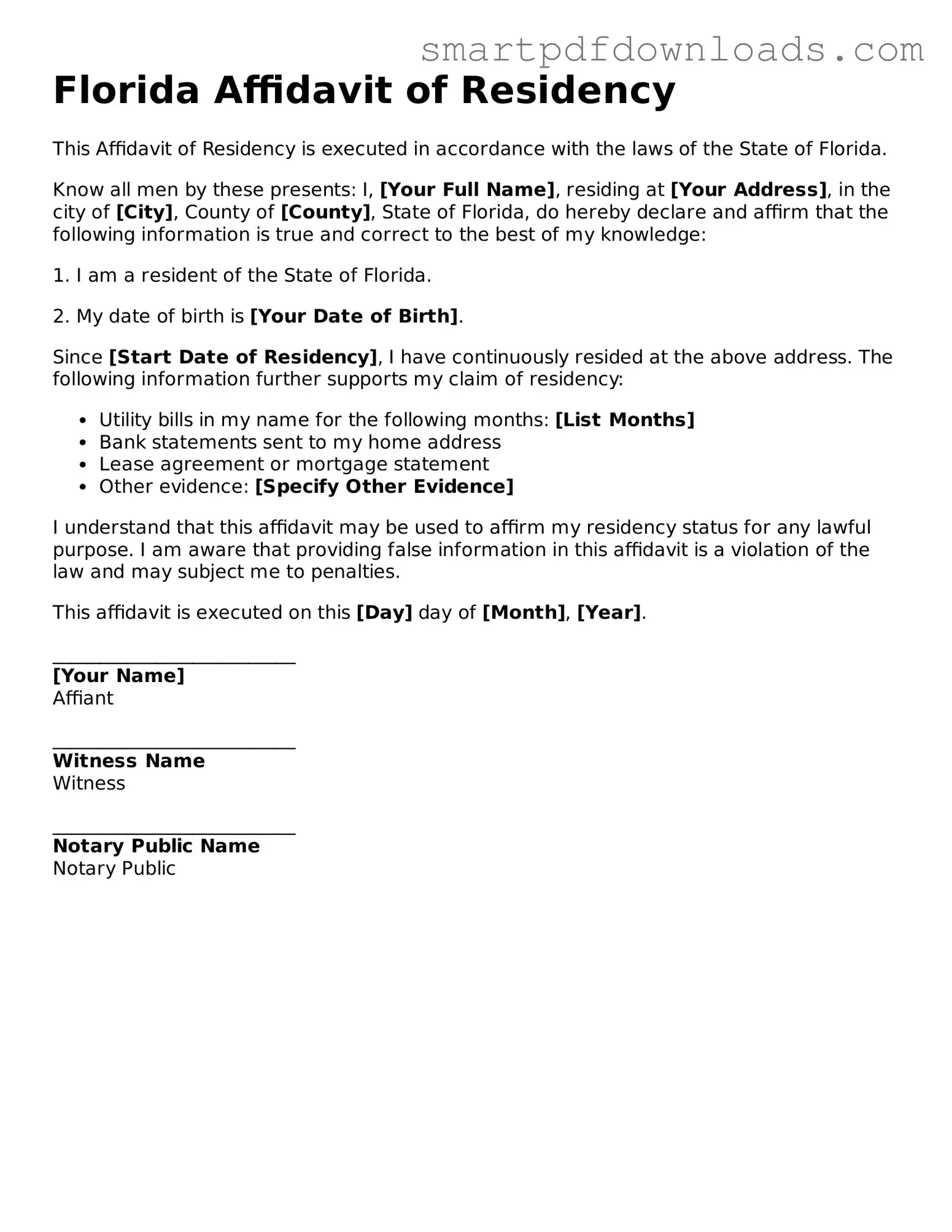Legal Affidavit of Residency Form for the State of Florida
The Florida Affidavit of Residency form is a legal document used to confirm a person's residence in the state of Florida. This affidavit serves as proof of residency for various purposes, such as obtaining a driver's license or registering to vote. Understanding its importance can help residents navigate essential processes more smoothly.
Edit Affidavit of Residency Online

Legal Affidavit of Residency Form for the State of Florida
Edit Affidavit of Residency Online

Edit Affidavit of Residency Online
or
⇓ PDF File
Finish the form and move on
Edit Affidavit of Residency online fast, without printing.